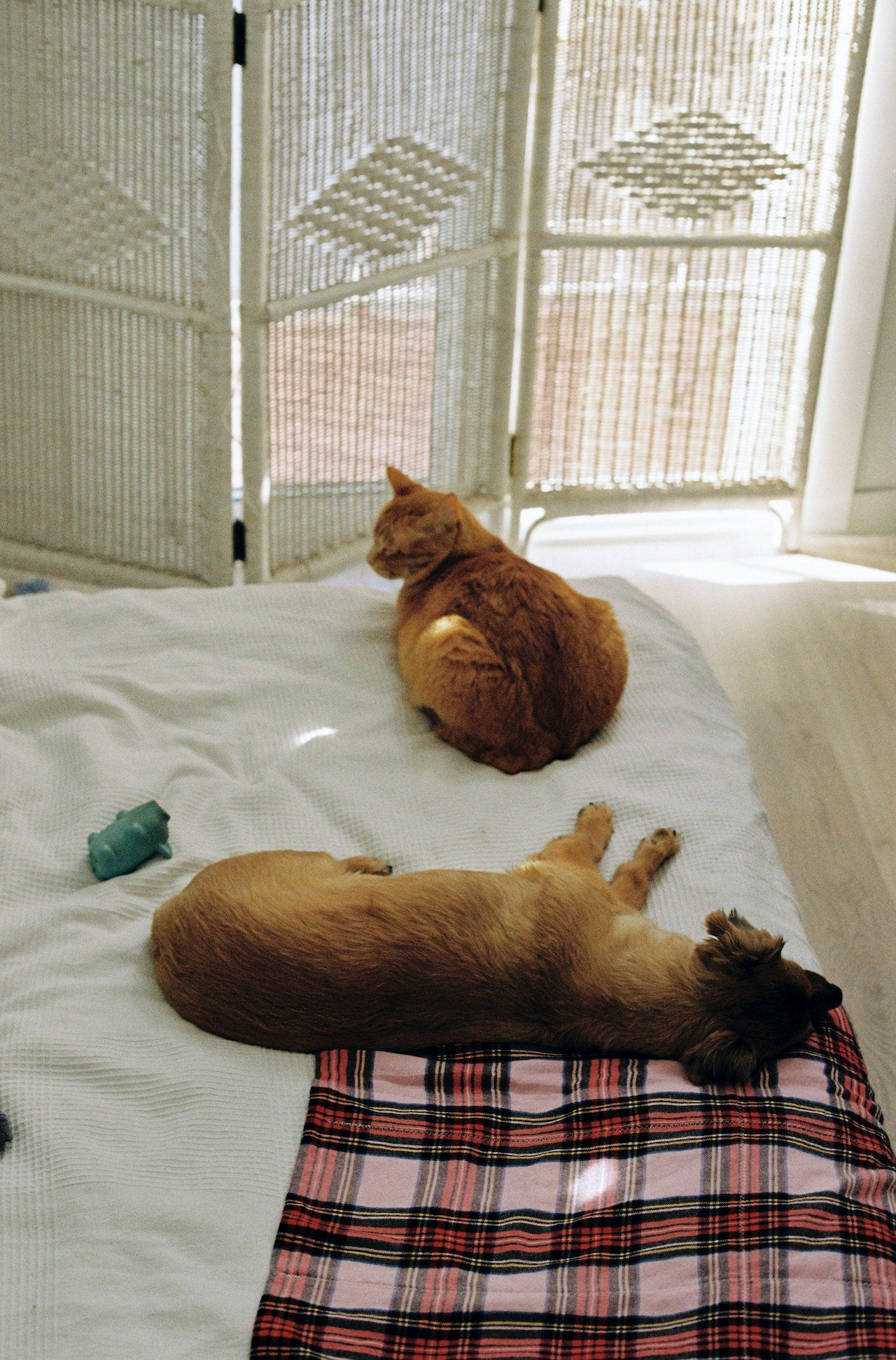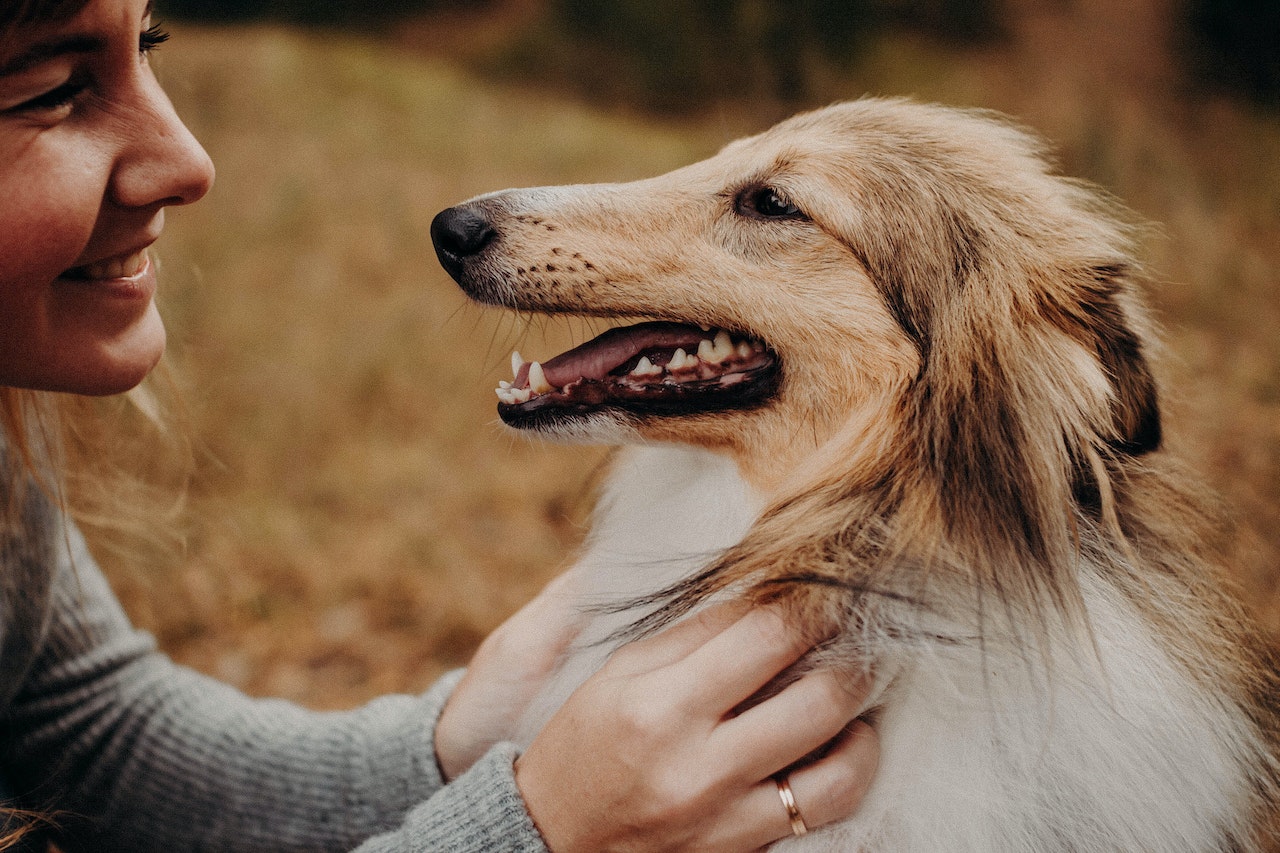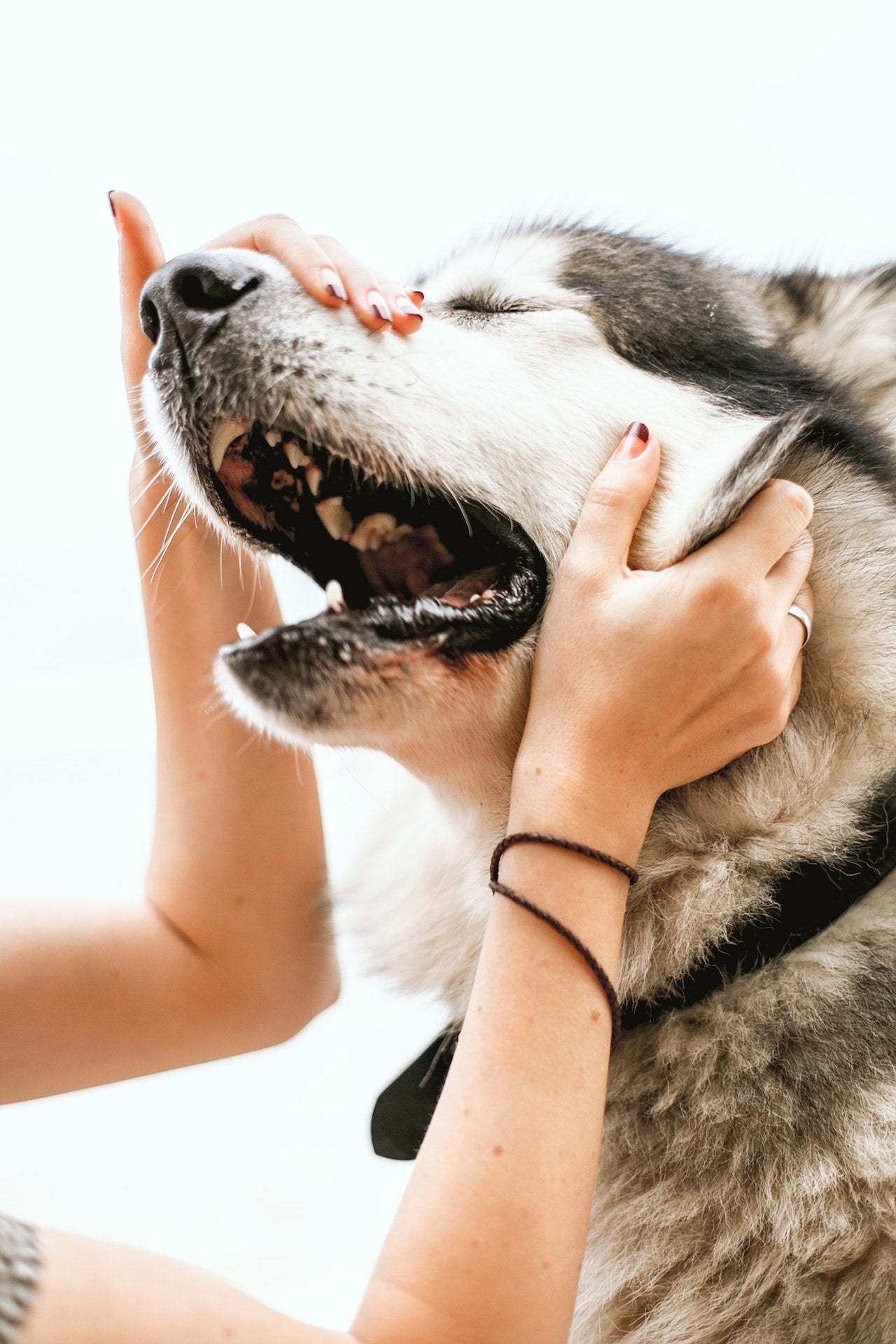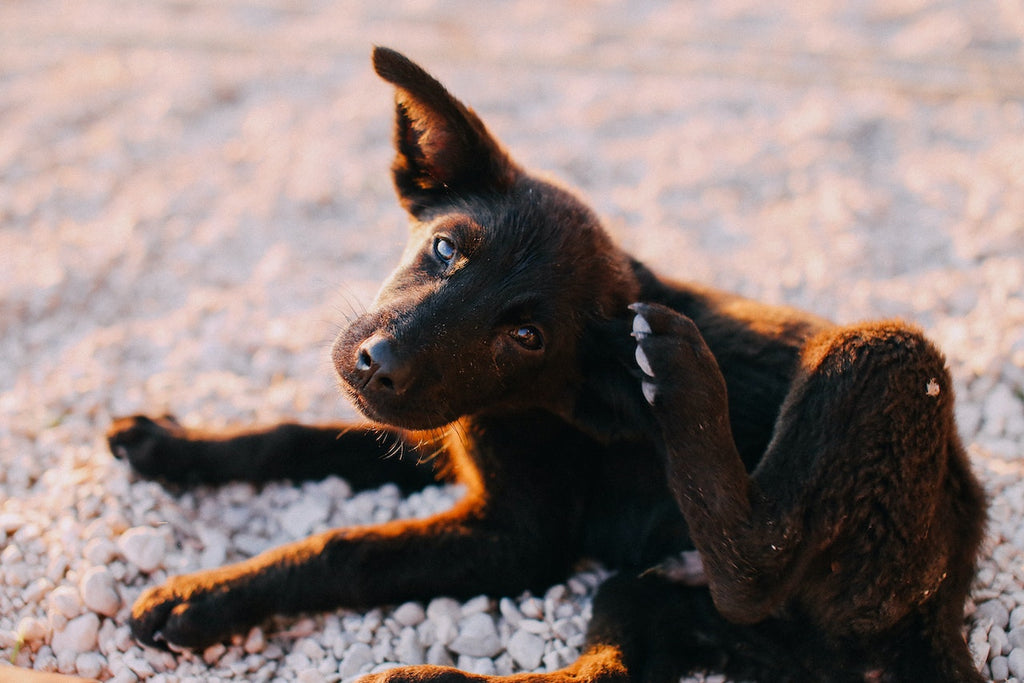
Lice are small, parasitic insects that feed on the blood of animals and humans. These insects are common in children and can cause itching and discomfort. But can dogs have lice? In this article, we will explore the answer to this question and the reasons why dogs can get lice.
What are Lice?
Lice are tiny, wingless insects that live on the skin and hair of animals and humans. There are two types of lice that can infest dogs: chewing lice and sucking lice. Chewing lice are called so because they chew on the skin of the dog, while sucking lice feed on the dog's blood. Lice are highly contagious and can spread from one dog to another through direct contact or shared bedding.
Can Dogs Have Lice?
Yes, dogs can have lice. Lice infestations in dogs are not as common as in humans, but they can still occur. Dogs with weak immune systems or poor living conditions are more susceptible to lice infestations. Pet owners should be aware of the signs of lice infestation in dogs, such as scratching, biting, and licking excessively.
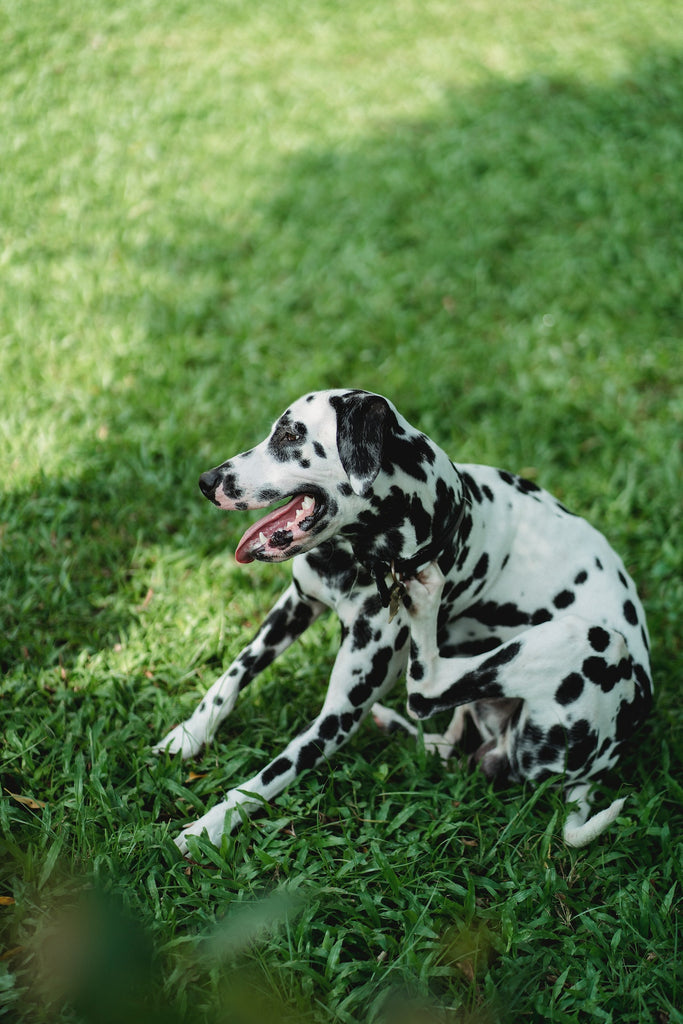
Reasons Why Dogs Get Lice
Dogs can get lice infestations for various reasons. Here are some common reasons why dogs get lice:
Close Contact with Infected Animals
One of the most common reasons why dogs get lice is close contact with infected animals. Lice are highly contagious, and dogs can easily contract them from other dogs, cats, or wild animals. Dogs that frequently visit dog parks, shelters, and kennels are at higher risk of contracting lice.
Poor Hygiene
Poor hygiene can also be a reason why dogs get lice. Dogs that are not groomed regularly or live in dirty and unhygienic environments are at higher risk of lice infestations. Lice thrive in dirty and greasy hair, so dogs with matted or greasy hair are more susceptible to lice.
Weak Immune System
A weak immune system can also make dogs more susceptible to lice infestations. Puppies, older dogs, and dogs with pre-existing health conditions are more vulnerable to lice infestations. A weak immune system can also make it more challenging to treat lice infestations effectively.
Stress
Stress can also be a contributing factor to lice infestations in dogs. Dogs that experience stress due to changes in their environment, such as moving homes or changes in their routine, are more likely to get lice.
Crowded Living Conditions
Dogs that live in overcrowded and cramped living conditions, such as kennels or shelters, are at higher risk of lice infestations. In these environments, lice can quickly spread from one dog to another.
Sharing Grooming Tools
Sharing grooming tools such as brushes, combs, and clippers can also spread lice from one dog to another. Dogs that share grooming tools with other dogs are at higher risk of lice infestations.
Overall, Dogs can get lice infestations for various reasons, including close contact with infected animals, poor hygiene, weak immune systems, stress, crowded living conditions, and sharing grooming tools. To prevent lice infestations in dogs, it is essential to maintain good hygiene, avoid close contact with infected animals, and keep your dog's immune system healthy. If you suspect that your dog has lice, seek veterinary care immediately. With prompt treatment and proper care, lice infestations in dogs can be treated effectively, ensuring that our furry friends remain healthy and happy.
Preventing lice infestations in dogs is crucial for their health and well-being.
Here are some ways to prevent lice in dogs:
Regular Grooming
Regular grooming is essential to prevent lice in dogs. Brushing and combing your dog's fur regularly can help remove any lice and their eggs before they can spread. Bathing your dog with a mild, medicated shampoo can also help prevent lice infestations.
Avoid Sharing Grooming Tools
Sharing grooming tools such as brushes, combs, and clippers can spread lice from one dog to another. It is essential to use separate grooming tools for each dog and to clean and disinfect them between uses.
Maintain Clean Living Conditions
Maintaining clean living conditions is crucial to prevent lice infestations in dogs. Keep your dog's living environment clean, hygienic, and well-ventilated. Regularly clean and disinfect your dog's bedding, toys, and other items.
Keep Your Dog's Immune System Healthy
A healthy immune system can help prevent lice infestations in dogs. Feed your dog a healthy, balanced diet, provide plenty of exercise, and ensure that they receive regular veterinary checkups.
Avoid Contact with Infected Animals
Avoiding contact with infected animals is essential to prevent lice infestations in dogs. Avoid taking your dog to areas where infected animals may be present, such as dog parks or shelters.
Use Preventative Products
Using preventative products such as flea and tick preventatives can also help prevent lice infestations in dogs. These products can repel and kill lice before they can spread.
Regular Inspection
Regularly inspecting your dog for signs of lice infestations is essential to prevent them from spreading. Look for signs of scratching, biting, and licking excessively, as well as small white eggs attached to your dog's fur.Overall, preventing lice infestations in dogs is crucial for their health and well-being. Regular grooming, avoiding sharing grooming tools, maintaining clean living conditions, keeping your dog's immune system healthy, avoiding contact with infected animals, using preventative products, and regular inspection are essential steps to prevent lice infestations in dogs.
Concluding words
In conclusion, lice infestations in dogs can be distressing for both pets and their owners. Dogs can get lice for various reasons, including close contact with infected animals, poor hygiene, weak immune systems, stress, crowded living conditions, and sharing grooming tools. Preventing lice infestations in dogs involves maintaining good hygiene, avoiding close contact with infected animals, and keeping your dog's immune system healthy. Regular grooming, avoiding sharing grooming tools, maintaining clean living conditions, and using preventative products are essential steps to prevent lice infestations in dogs. If you suspect that your dog has lice, seek veterinary care immediately. With proper care and attention, lice infestations in dogs can be prevented and treated, ensuring that our furry friends remain healthy and happy.

